#solidarnosc
Text
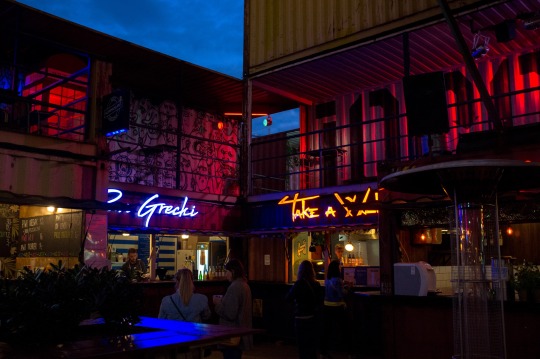
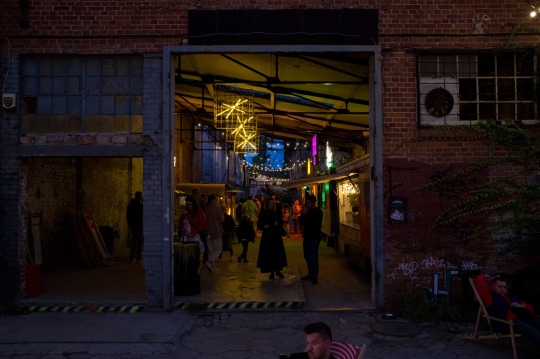

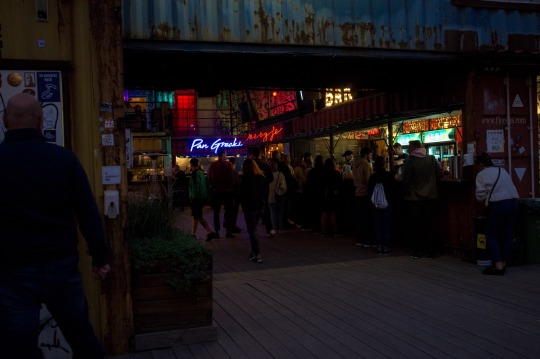
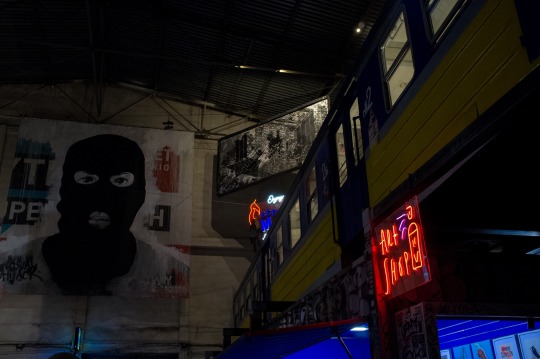
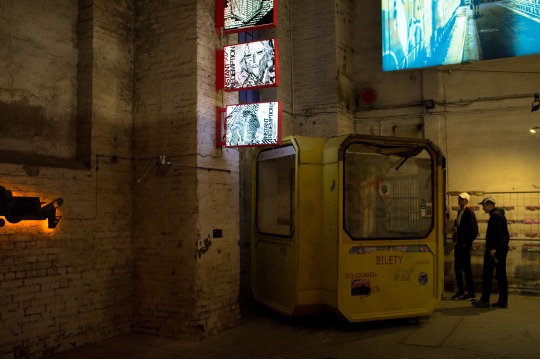
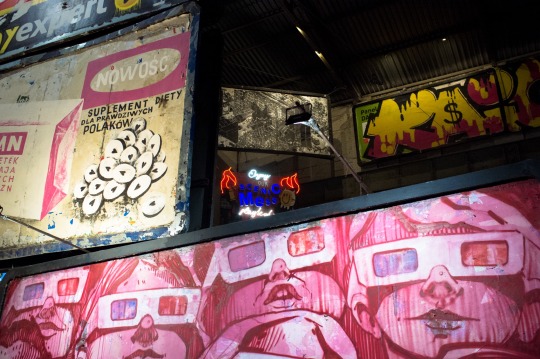
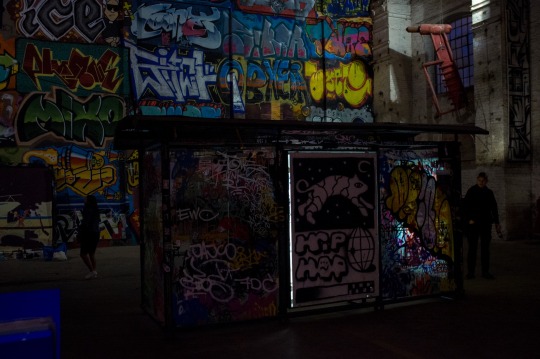

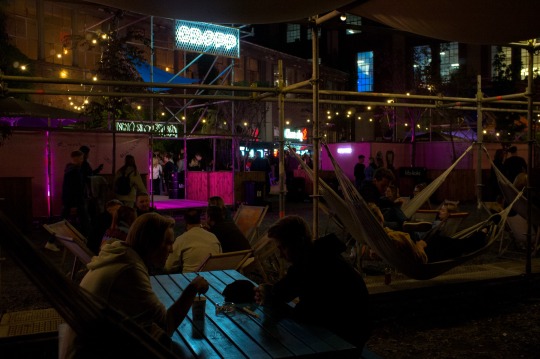
Stocznia (100cznia) party zone in Gdansk, Poland 🇵🇱
#photography#x100#x100f#x100v#street photography#holiday#travel#urban photography#architecture#art#poland#gdansk#solidarnosc#stocznia#100cznia
701 notes
·
View notes
Link
Danzica, visitare le città dell’ambra e di Solidarnosc, secondo giorno #viaggiaescopri #travelwebtv #lelelatta
0 notes
Text
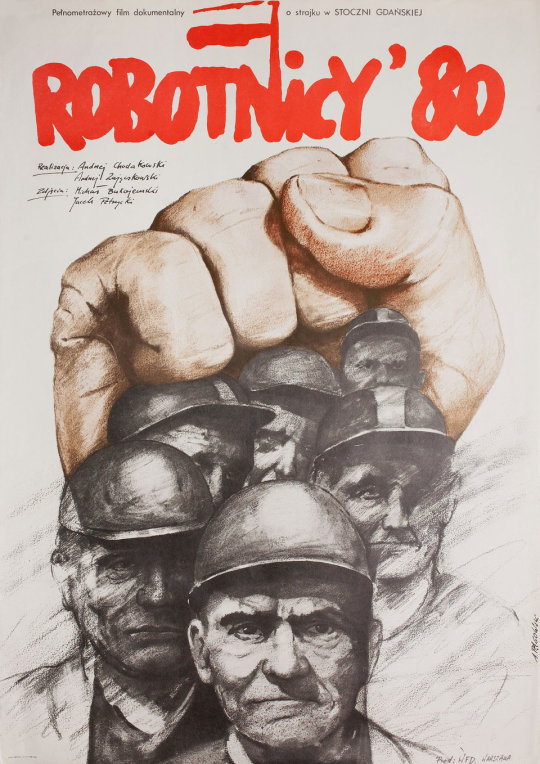
Classic Polish movie posters - ROBOTNICY 80 (Workers 80)
Directed by: Andrzej Chodakowski and Andrzej Zajaczkowski (1980)
1 note
·
View note
Photo
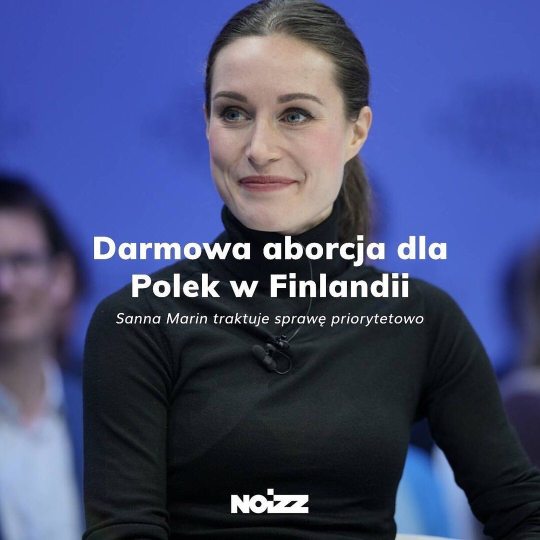
From • @noizzpl Finlandia chce pomóc Polkom w dostępie do ich podstawowych praw i pozwolić na darmową aborcję na terenie Finlandii. Sprawa ma zostać sfinalizowana w nowej kadencji fińskiego rządu. Cały tekst znajdziesz na stronie (link w bio). Fot. Markus Schreiber / Associated Press / East News #finlandia #finskirzad #aborcja #polki #pomoc #premierka #SannaMarin #podstawoweprawo #solidarnosc #kobietyzpolski #noizz #noizzpl https://www.instagram.com/p/CpfNYPaMaZqSs_sJGFF_UhNtKZz9gAaicTls_00/?igshid=NGJjMDIxMWI=
#finlandia#finskirzad#aborcja#polki#pomoc#premierka#sannamarin#podstawoweprawo#solidarnosc#kobietyzpolski#noizz#noizzpl
0 notes
Photo
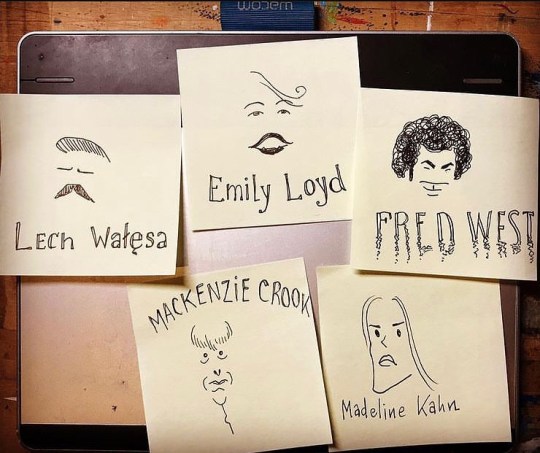
Some birthday postits from this day in 2020. Amazingly, all these people still have the same birthday. . #actor #caricature #comedien #serialkiller #solidarnosc #portrait #acrylicpainting #profileillustration #sketchbookspecials #editorialillustration #magazineillustration #magazinecover #illo #hollywoood #pencildrawing #lineandwash #artistsoninstagram https://www.instagram.com/p/CjFNE_TMMB1/?igshid=NGJjMDIxMWI=
#actor#caricature#comedien#serialkiller#solidarnosc#portrait#acrylicpainting#profileillustration#sketchbookspecials#editorialillustration#magazineillustration#magazinecover#illo#hollywoood#pencildrawing#lineandwash#artistsoninstagram
0 notes
Text
god i hope she asks me about marx tommorow. or psychologism
#or like. just a general question on the evolution of positivism maybe#please please please let me dunk on spencer and durkheim#if she asks me about sorokin or pareto.........girl its so over#also my god. why does so much of this sound the same#i mean i know why but still#faza teologiczna/metafizyczna/pozytywistyczna u comte'a.......... potem militaryzm/industrializm spencera......a potem jeszcze skurwiala#solidarnosc mechaniczna/organiczna.........i to jest kurwa prawie wszystko to samo i ja to na pewno pomyle#nwm moze ewentualnie zapyta o webera ale pod katem polityki a nie religii............................#kurwaaa nie znosze tego gowna i do tego to bedzie pierwszy ustny jaki mamy i ostatni tez na szczescie#📓
2 notes
·
View notes
Text

SOLIDARNOŚĆ?! IN MY FRENCH COMIC?!
#hatter blathers#its called zombillenium#its about an amusement park ran by monsters and undead for human clients#under the guise of a spooky amusement park with human workers#this tome appears to be about a union so...#yeah. it is a very french comic#plus solidarnosc fits the theme lol
1 note
·
View note
Text
can we kiss in the controversial government-funded museum?
#my professor doesn't like the solidarnosc museum#i enjoyed the audioguide but i understand why he doesn't
1 note
·
View note
Text
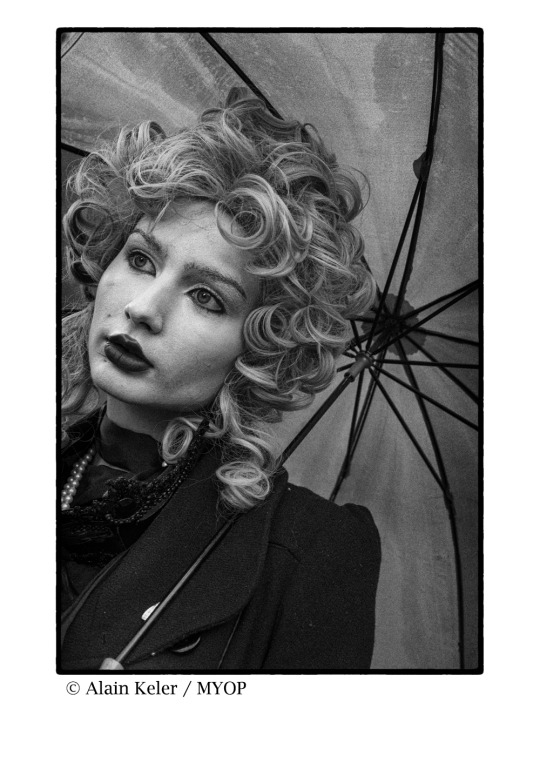
Vendredi 23 février 2024.
Je marche rue de Rivoli, à l'angle de la rue Lobau je vois cette jeune fille avec une ombrelle. Je fais furtivement une photo en passant, mais je ne la trouve pas réussie, et la jeune femme m'a vu. Je m'approche d'elle, me présente un peu à la manière des frères Turnley, délicatement. Kaja est polonaise. Nous parlons en anglais. Je lui dis avoir été en Pologne plusieurs fois dans les années 80 couvrir la grande grève de Solidarnosc à Gdansk, avoir même photographié Lech Walesa. Je ne suis pas certain que cela lui fasse de l'effet. Je vais même jusqu'à lui donner les coordonnées d'un photographe polonais vivant entre Varsovie et Paris, Wojtek Laski, en lui disant qu'en cas de problème elle peut le contacter de ma part, un peu comme si je me sentais coupable d'avoir tenté de voler son image. Je lui demande ce qu'elle fait à Paris, je suis performeuse me dit-elle. Je ne sais pas ce que c'est une performeuse dans la rue. Google donne une définition : "le performeur « ou la "performeuse « est une personne qui « réalise une action « pour un public, à l'image des artistes dont la pratique relève des arts vivants, mais aussi dans un sens plus large, des personnes dont les actions lors d'évènements spécifiques relèvent d'une forme de spectacle ou événement".
Alors je lui demande si je peux la photographier. Elle accepte et c'est la photo du journal d'aujourd'hui.
Un peu plus tard, sur Instagram je vois une photo d'elle prise par Olivia Bonnamour dans un café. Olivia, à quelle heure as tu rencontré Kaja?
9 notes
·
View notes
Text
your goal IMO would be something more like Solidarnosc than the Spartacist League, because the coalition you want to tap into to prevent a reactionary coup in the US is a broad one--left, liberal, even center-right, one that is primarily pro-democracy and anti-authoritarian, and isn’t focused on ideological purity. The constituency for reactionary authoritarianism in the US isn’t actually that big--nowhere near half the country--but it’s much more highly motivated, and, crucially, there are no compelling alternatives near the middle of the political spectrum. And again--you’re not going to win a shooting fight, and you shouldn’t try.
38 notes
·
View notes
Text
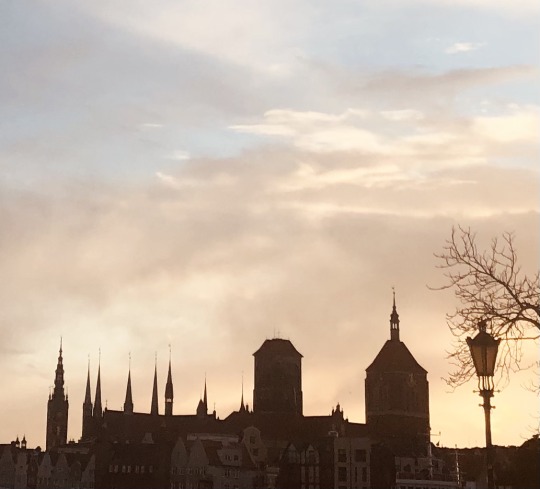

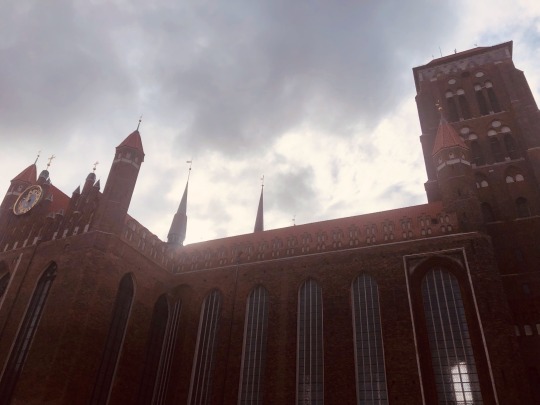
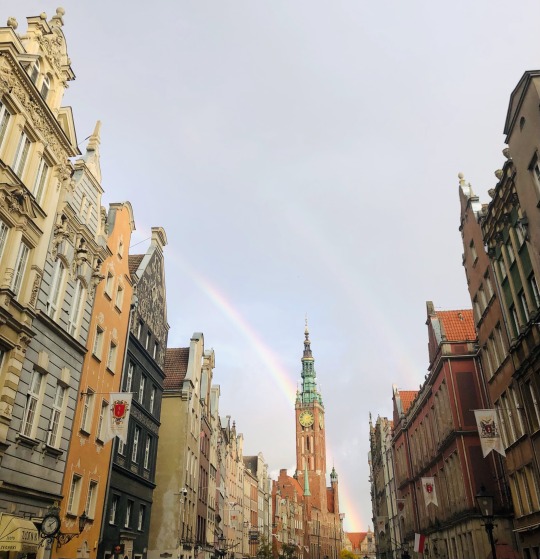


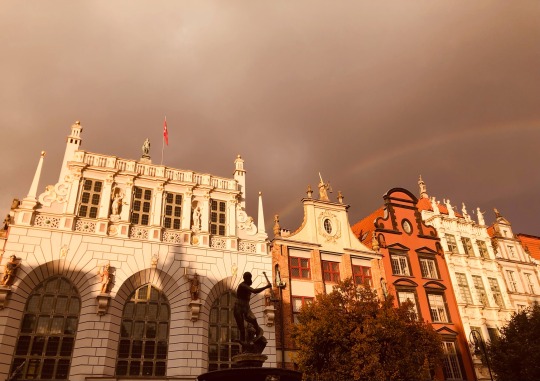

2-4 oktober
Na een straat bestaande uit kasseien en een pad van betonplaten temidden in een bos bevindt zich het hotel. Het loopt tegen zevenen en het begint te schemeren. Tijd om te gaan eten, maar helaas het restaurant is op dinsdagen dicht. Het dichtsbijzijnde is een kwartier rijden, en om er te komen moet je een smal weggetje nemen. Donker en stil is het inmiddels. Een goed gevoel van vroeger bekruip je, uit de tijd zonder navigatiemiddelen, dat je helemaal niet meer weet waar je bent. De asfaltweg houdt op en gaat over in een straat die bedekt is met kinderkopjes dat naar een meer daalt. Vanuit een houten pand brandt licht. Eenmaal binnen blijken de lampen bevestigd te zijn aan scheepsraderen. Een man zingt schlagers. Langs de geel oranje muren waar hobbyschilderijen hangen met wuifend riet kun je plaats nemen aan tafels met eenvoudige stoelen. Het menu blijkt uit één gerecht te bestaan…gulash! Dit is zo’n moment dat het leven eenvoudig en overzichtelijk is. Gewoon ergens ver weg in de bossen aan een meer waar het halve maan is, ten westen van Berlijn in Brandenburg.
Een hele reis is achter de rug van 4.000 km. Via Duitsland, Polen, Litouwen, Letland en weer terug via Litouwen naar het noorden van Polen en Duitsland, met een meerdaagse stop in Gdansk. De stad waar onder leiding van Lech Walesa in 1980 gestaakt werd door Solidarnosc. Polen was in die jaren vaak in het nieuws. Wat zich toen in het oostblok afspeelde werd mij als 11 jarige door deze vloedgolf van verzet duidelijk. Een arm land waar mensen onderdrukt werden en waar je massaal kleding en andere goederen voor kon inzamelen. Gdansk blijkt een stad te zijn met een indrukwekkende geschiedenis. De koopmanshuizen rond het stadhuis getuigen ervan. Eveneens als de grootste bakstenen gebouwde kerk van Europa en de Westerplatte ten noorden van de stad waar de Tweede Wereldoorlog op 1 september 1939 begon.
Het was een interessante vakantie met veel historische plaatsen, waar telkens blijkt dat door terreur en oorlog en de gevolgen daarvan, mensen vluchten en huis en haard moeten verlaten, maar waar gelukkig ook uit blijkt dat ondanks alle waanzinnige acties om mensen, talen en culturen te willen laten verdwijnen dit nooit gelukt is.
3 notes
·
View notes
Text
Losing my mind as I learn that Stefania’s nephew’s son’s son represents Poland at the European Commission, used to work for the Polish government, and was directly involved in one of many state-sponsored media campaigns that ultimately culminated in the “German, Nazi Death Camps” law, i.e., it is tantamount to Slander and Libel to describe any Holocaust-adjacent actions on territory of Poland as Polish or imply that Poland was complicit in the genocide of Polish Jewry. Dude your family mythology probably focuses on your father’s 1981-82 internment for Solidarnosc because it’s more politically expedient to the present moment but both your grandparents were very much assimilated Jews who lost almost their entire extended families in the Holocaust. Stefan’s testimony talks about collaboration from Poles, Ukrainians, and Jews alike, ascribing to each his own interpretations of their motivations (the Jews got “special privileges” or their lives were spared; the Ukrainians in his region were already fairly organized into a far-right bloc, so it was opportunistic, they wanted to “bei zhidov” and smack around their Polish peers; some of the Poles, interestingly, were passing themselves off as Ukrainians in this manner, using violence as a cover to avoid detection; not to pull the nuance card about Holocaust memory in Poland but I have been reading Holocaust testimony all night and then following the threads of survivors’ descendants when they pick a ‘national’ narrative and stick to it--committed Polish assimilators, committed Israeli ‘repatriants’ and American Zionists alike, though in different ways--and it’s making me insane).


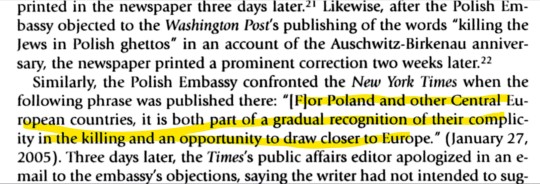

3 notes
·
View notes
Text
Intervista a Lech Walesa, ex leader di Solidarnosc e Premio Nobel per la pace
Lech Walesa, ex leader di Solidarnosc e Nobel per la Pace, parla della Russia e dei rischi della guerra in Ucraina alle porte dell’Europasource
View On WordPress
0 notes
Text






El derrumbe: 25 años de la caída del Muro de Berlín
La caída del Muro de Berlín como símbolo de la caída del telón de acero de los países de la órbita soviética empieza en Polonia un 6 de febrero de 1989 durante las ‘mesas redondas’ en la Sala de las Columnas de Varsovia entre el régimen comunista y la disidencia polaca, especialmente Solidarnosc. Con Lech Walesa al frente, las ánsias de democracia y libertad que se generaron en Polonia, se ampliaron a todos los países de la Europa del Este. Había la posibilidad de hablar, reunirse y discutir cual era el mejor escenario (evidentemente sin elecciones) para canalizar esos anhelos abriendo nuevas vias para facilitar cambios políticos sin violencia. Además, la estructura comunista estaba haciendo aguas y no podía sostener más una economia cerrada.
El primer muro que cayó fue el 4 de mayo de 1989 en la frontera entre Hungría y Austria. Las autoridades húngaras permitieron a sus ciudadanos pasar a occidente y hasta 15.000 alemanes cruzaron los pasos fronterizos. El 23 de agosto se organiza la cadena humana más larga de la historia que unió a Estonia, Letonia y Lituania��provocando que el espíritu de mobilización llegue a la Alemania Oriental en forma de manifestaciones como las que se realizaron en Leipzig a partir del 4 de septiembre, todos los lunes al grito de ‘Wir sind das Volk!’ (‘¡Nosotros somos el pueblo!’) en clara referencia al ideal comunista que había quedado pervertido por los órganos gobernantes. El líder de la RDA, Erich Honecker, renunció el 18 de octubre de 1989.

Miles de berlineses se congregaron cerca del Muro para vivir un hecho histórico
Poco después comenzaron las manifestaciones masivas en contra del gobierno de Alemania Oriental, especialmente la del 4 de noviembre en Alexanderplatz donde se congregaron medio millón de personas. El Partido Socialista Unificado de Alemania (SED) decidió, el 7 de noviembre, regular los viajes al exterior, facilitándolos. El 9 de noviembre se promulgó un plan que permitía obtener pases para viajes de visita. El miembro del Politburó del SED Günter Schabowski anunció en una conferencia de prensa, retransmitida en directo por la televisión de Alemania Oriental, que todas las restricciones habían sido retiradas y, creyendo que podrían pasar sin ningún trámite al otro lado, decenas de miles de personas fueron inmediatamente al muro, donde los guardas fronterizos no se atrevieron a disparar. Gracias a que las radios y televisiones de la RFA y Berlín Oeste empezaron a difundir el título de ‘¡El Muro está abierto!’, miles de berlineses del este se presentaron en los puestos de control y exigieron pasar al otro lado. En esos momentos, ni las tropas de control de fronteras ni los funcionarios del ministerio encargados de regularlas estaban informados. Sin una orden concreta, sino bajo la presión de la gente, el punto de control de Bornholmerstraße se abrió a las 23:00 hrs, seguido de otros puntos de paso, tanto en Berlín como en la frontera con la RFA. Los propios ciudadanos berlineses empezaron la destrucción del muro con todos los medios a su disposición (picos, martillos, etc.). El violoncelista Rostropóvich, que había tenido que exiliarse a occidente, fue al pie del muro con su instrumento y empezó a tocar. Una de la muchas imágenes que nos han quedado para la historia de ese día.

Un hombre con un martillo golpea el muro que dividió durante 28 años Berlín y Alemania

Mstislav Rostropóvich con su violoncelo ofrece un concierto improvisado junto al muro que sería derribado
1 note
·
View note
Text

If we ask Washington, they will say that the Berlin Wall fell because of Reagan. If in Moscow, for Gorbachev.
If in the Vatican, thanks to Karol Wojtyla.
If in Berlin thanks to Kohl.
If in Warsaw, they will say it was thanks to us.
For me it began to fall in Gdansk, when the protest of the Solidarnosc workers sanctioned the end of communism: they were proletarians protesting against the dictatorship of the proletariat.
0 notes
